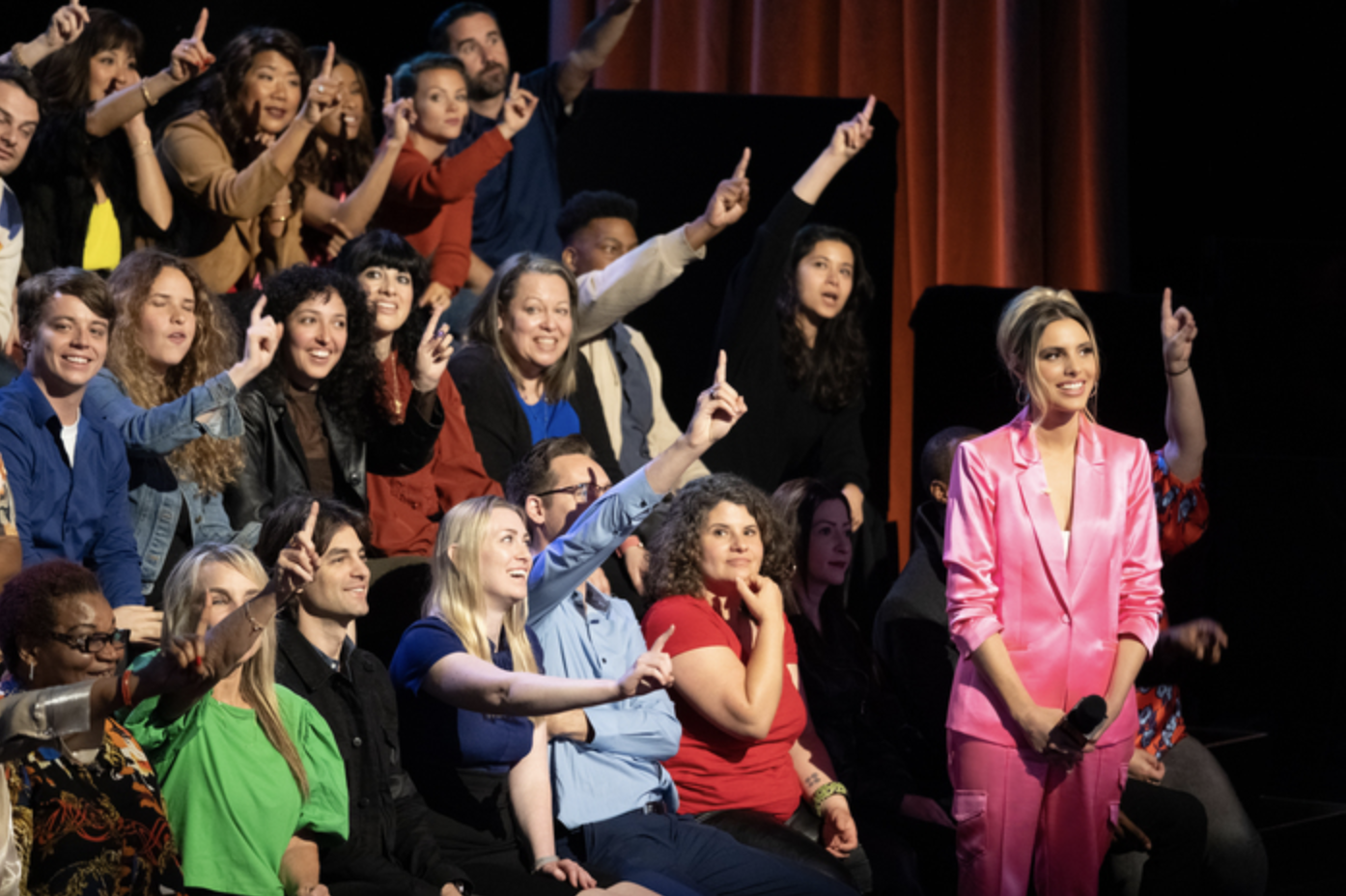
News
Harvard Researchers Develop AI-Driven Framework To Study Social Interactions, A Step Forward for Autism Research

News
Harvard Innovation Labs Announces 25 President’s Innovation Challenge Finalists

News
Graduate Student Council To Vote on Meeting Attendance Policy

News
Pop Hits and Politics: At Yardfest, Students Dance to Bedingfield and a Student Band Condemns Trump

News
Billionaire Investor Gerald Chan Under Scrutiny for Neglect of Historic Harvard Square Theater
‘Wish List Games’ Review: Prime Video’s Newest Game Show Lacks Competition
2 Stars

It's no question that the heyday of game shows has long since passed. Even the most popular of shows — from “Family Feud” to “Wheel of Fortune” — have experienced a steady decline in popularity over the years. Prime Video’s “Wish List Games” is a lackluster attempt to reverse this trend, with the only sparks of originality lying in its supposedly random selection of contestants from the audience.
The game show sees its contestants competing for items pulled from their Amazon wishlist, up to a cumulative value of $25,000. Featuring games with varying degrees of difficulty, which ultimately culminates in a challenge to determine whether or not all of the members of the audience win a prize, the lack of any sort of connecting theme leaves the show feeling disjointed at best. Each episode features four contestants, but only the last challenges — typically trivia-related games — are able to accomplish true unity between the players and any real audience engagement.
Rather than perfecting a few concrete games or concepts and trusting the audience to be motivated to watch more in order to improve their own intuitions or skills, “Wish List Games” attempts to introduce far too many challenges. From a matching game to a catapult challenge, the showrunners attempt no standard for difficulty, length, or theme. It is this lack of unity that brings a hollowness to the contestants’ victories and removes any potential buildup of suspense or connection with the viewership.
One aspect that does remain consistent throughout “Wish List Games” is the lack of complexity and nuance in many of the challenges, which in their simplicity often fail to keep the audience engaged, while also guaranteeing that almost every contestant walks away with the majority — if not the entirety — of their wishlist. This overall lack of stakes results in a bland, unenjoyable experience that feels excruciatingly long despite the show's impressive ability to crank through contestants in roughly ten minutes apiece.
However, what the show lacks in competitive suspense it attempts to make up for in touching stories and emotion. Forcing sob stories and entrepreneurial aspirations from almost all its competitors, a somewhat sour taste of exploitation and deception taints “Wish List Games.” And with a number of seemingly scripted, gimmicky moments sprinkled throughout the show — including a marriage proposal — any trust in the legitimacy of the show’s candidness goes out the window almost immediately.
Regardless, choosing competitors from the audience certainly allows “Wish List Games” to spark a desire in at-home viewers to personally benefit from Amazon’s $2.19 trillion net worth. However, with the game show receiving minimal media attention and only five episodes this season, it's safe to predict it might be a limited series rather than a franchise.
Hosts Nick Cannon and actress Lele Pons — a seemingly random pairing — make no positive contribution to the series despite their attempts at charisma. Failing to complement each other effectively, an air of disjointedness carries throughout the episodes as Pons is isolated in the audience while Cannon takes care of business onstage. From a markedly neutral tone to a number of uncontrolled side-eye glances, Cannon often finds himself reflecting the attitude and expressions of the average viewer.
The lackluster energy from the two hosts is sharply contrasted by the obnoxiously outgoing contestants who frequently happened to find their way to the big stage. The constant screaming and frantic behavior is sure to evoke images of “Wish List Games” game show predecessors, most notably the chaotic energy of “The Price is Right.”
Sure to be the longest Amazon advertisement you’ll ever encounter, “Wish List Games” fails to justify its creation for anything other than online shopping-aided consumerism. Ultimately, it is simply not entertaining to watch a grown man play Amazon-themed Jenga for fifteen minutes, regardless of whether an adult-sized swing set or electric keyboard is on the line.
Want to keep up with breaking news? Subscribe to our email newsletter.
